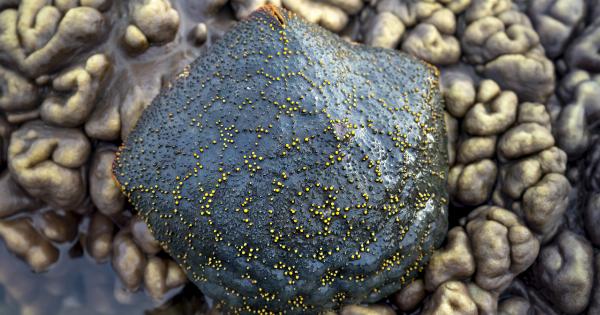The aging process affects every aspect of the human body, including the brain. As individuals grow older, their brain undergoes several changes that can impact cognitive functions and overall brain health.
However, certain factors can influence the rate at which the brain ages, and this is especially true for children. While all children experience brain development, there are specific factors that contribute to some children experiencing less brain aging than others.
This article explores these factors and sheds light on what makes some children able to maintain better brain health as they grow older.
Genetics
Genetics plays a significant role in determining how our bodies develop and age, and the brain is no exception. Some children are born with genetic factors that make them more resilient to brain aging.
These factors can include specific genetic variations that enhance brain health, reduce the likelihood of age-related cognitive decline, and improve overall brain function. However, it is important to note that while genetics may provide an advantage, it is not the sole determining factor in brain aging.
Environmental Enrichment
The environment in which a child grows and develops greatly impacts brain health. An enriched environment that stimulates cognitive growth and development can play a crucial role in reducing brain aging.
Children who have access to a variety of learning opportunities and stimulating experiences are more likely to have healthier brains as they age. Activities such as reading, playing musical instruments, engaging in sports, and exploring nature can all contribute to better brain health and decreased aging effects.
Nutrition
Proper nutrition is essential for optimal brain health, especially during the crucial stages of brain development in childhood.
Certain nutrients, such as omega-3 fatty acids, antioxidants, and vitamins, play a vital role in supporting brain function and reducing the risk of age-related cognitive decline. A healthy and balanced diet that includes a variety of fruits, vegetables, whole grains, lean proteins, and healthy fats can provide the necessary nutrients for optimal brain health and slow down the aging process.
Physical Activity
Regular physical activity has numerous benefits for both the body and the brain. Studies have shown that children who engage in regular exercise have improved cognitive function, increased attention span, and better memory retention.
Physical activity increases blood flow and oxygen to the brain, which contributes to the growth of new neurons and improves overall brain health. By incorporating exercise into their daily routine, children can experience less brain aging and maintain better cognitive function as they age.
Sleep
Sleep plays a vital role in brain health and overall well-being. During sleep, the brain goes through essential processes that consolidate memories, repair damage, and remove toxins.
Sufficient and quality sleep is especially crucial for children as their brains are still developing. Lack of sleep or disrupted sleep patterns can negatively affect brain function and contribute to accelerated brain aging.
Establishing a consistent sleep routine and ensuring children get an adequate amount of sleep each night is vital for maintaining optimal brain health.
Mental Stimulation
Providing children with ample mental stimulation can have a significant impact on their brain health and resilience to aging.
Engaging in activities that challenge the brain, such as puzzles, learning new skills, or engaging in creative pursuits, can promote cognitive growth and reduce the risk of cognitive decline later in life. Mental stimulation encourages the formation and maintenance of connections between brain cells, known as synapses, which are vital for healthy brain function and preventing brain aging.
Minimal Exposure to Toxins
Exposure to toxins, such as pollutants, heavy metals, and certain chemicals, can have detrimental effects on brain health, particularly in children.
These toxins can accumulate in the body and brain, leading to oxidative stress, inflammation, and damage to the neurons. Minimizing exposure to toxins by ensuring a clean and safe environment can significantly contribute to reducing brain aging in children.
This includes avoiding tobacco smoke, limiting exposure to harmful chemicals, and ensuring access to clean air and water.
Stress Management
Chronic stress can have a detrimental impact on brain health and accelerate the aging process. Children who experience high levels of stress, whether from traumatic events or ongoing stressors, are more susceptible to cognitive decline and brain aging.
Teaching children effective stress management techniques and providing a supportive and nurturing environment can help mitigate the negative effects of stress on the brain. Stress reduction techniques such as mindfulness, yoga, and relaxation exercises can promote brain health and protect against age-related cognitive decline.
Social Interaction
Human beings are social creatures, and social interaction plays a vital role in brain health. Children who have healthy social relationships and regular social interactions tend to experience less brain aging.
Engaging in social activities stimulates the brain, promotes emotional well-being, and helps maintain cognitive function. Encouraging children to participate in group activities, play with peers, and develop strong social connections can contribute to better brain health as they age.
Continued Learning
Learning is a lifelong process, and children who continue to engage in learning throughout their lives are more likely to experience less brain aging.
Even after formal education, keeping the brain active and curious through reading, taking courses, or pursuing hobbies and interests can have significant long-term benefits. Continuous learning promotes brain plasticity, which enables the brain to adapt and rewire itself, leading to better cognitive function and reduced brain aging.
Conclusion
While brain aging is a natural process, certain factors can influence the rate at which it occurs.
Genetics, environmental enrichment, nutrition, physical activity, sleep, mental stimulation, toxin exposure, stress management, social interaction, and continued learning all play significant roles in determining how the brain ages in children. By incorporating these factors into a child’s life, parents and caregivers can contribute to better brain health and reduce the risk of age-related cognitive decline.
Investing in the well-being of a child’s brain can have long-lasting benefits and set them up for a healthier and more vibrant life as they grow older.





























